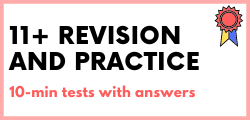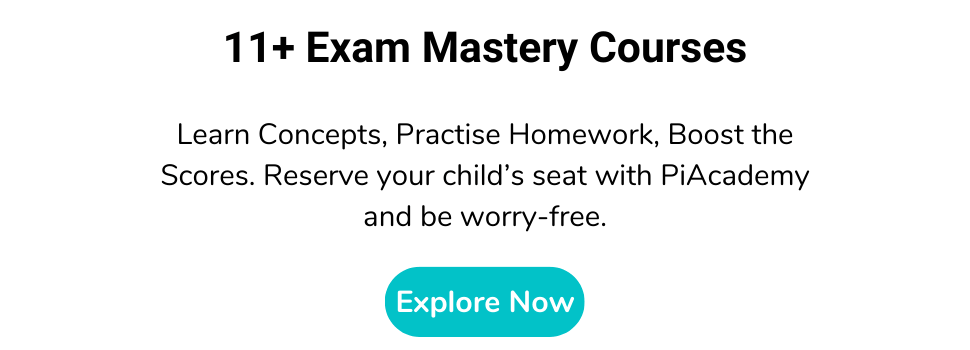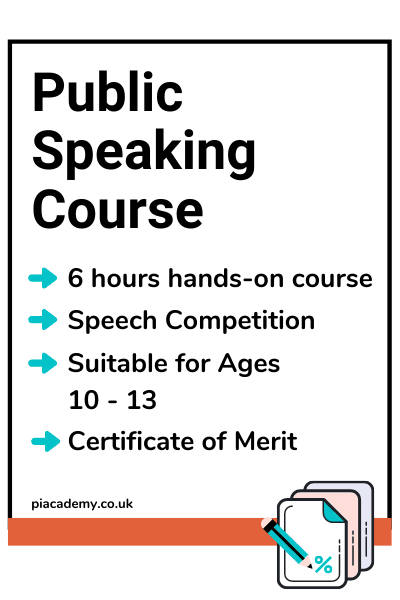What is this Exam?
The 11+ Exam is an admission test for those who are looking for admission into Grammar and Independent Schools in the United Kingdom. The article on 11+ FAQs covers the frequently asked questions regarding the 11+ Exam.
Table of contents
- What is this Exam?
- 11+ Exam Frequently Asked Questions (11+ FAQs)
- 11+ Exam Preparation
- Should I tutor the candidate myself?
- 11+ Subjects
- Exam Results and Appeals
What will be tested?
While each school has its own exam, the exams generally test the following:
- English
- Comprehension
- Grammar and Spelling
- Writing – compositions, etc.
- Reasoning
- Verbal – reasoning skills based on language
- Non-verbal – reasoning skills based on shapes and patterns
- Maths – reasoning skills based on numbers
Note that the style of questioning may differ from school to school but the core skills being tested are the same
11+ Exam Frequently Asked Questions (11+ FAQs)
What information do I need about the exam for each school?
Since different schools could have different 11 plus Exam patterns, parents can have a list of 11+ FAQs that they need to find out about the exam in order to prepare for the test. 11+ FAQs tackle the common questions about the exam. In general, get information about the following:
- What subjects will the 11+ examination test?
- What are the 11-plus exam dates?
- What will the format of the 11-plus exam be?
You can get this information from the school to which your child or ward intends to apply for admission.
11+ Exam Preparation Using 11+ FAQs
Should I engage a Tutor?
There are very limited places available in Grammar and Independent schools and the number of aspirants is very high so competition is fierce in the 11-plus exam. Candidates definitely need tuition in order to score high in 11 plus exam papers and have a chance of success.
Some reasons to engage an 11+ tutor are:
- You, as parent or guardian, don’t have the time required to tutor your child/ward
- Your child/ward responds better to a non-family member in study situations
- You prefer to rely on someone who has experience in this sphere
Should I Tutor the Candidate Myself?
If you wish to tutor your child / ward yourself, use the following checklist to decide:
- Can I evaluate the current skills of the candidate?
- Do I have all the information on the exams at hand?
- Considering the workload, do I have the time needed to work with the candidate to work on areas where he/she might be lacking?
- Will my child/ward respond well to supervision and instruction from me in a study situation?
- Do I have the knowledge required to bring my child/ward up to the level of skill required to secure a high enough percentage in the exam? (You should answer this question for each of the core subjects of the exam).
- Do I have the knowledge of techniques to help my child/ward boost examination performance?
11+ Subjects
How can I prepare the candidate for the 11-plus English exam?
The 11+ English exam papers have several components. Here are some tips to help prepare for each:
- 11+ Comprehension
- Download test passages and questions available online (some 11 plus exam papers with answers are free, some may need to be purchased)
- Teach the candidate to first read the questions for a comprehension passage/extract given
- Have the candidate then read the passage/extract with the questions in mind
- Teach the candidate to highlight the words/sentences that answer the questions
- Have the candidate answer the questions, referring back to the passage as often as necessary
- 11+ Spelling
- Give the candidate plenty of practice by dictating lists of words to spell.
- Teach the candidate the difference between the verb forms and noun forms of words, e.g. advise / advice and practise / practice.
- Work with the candidate on homophones and how the spelling changes the meaning.
- Give the candidate practice on the above, as well as plurals, prefixes, and suffixes, silent letters, etc.
- Use word games to keep the child engaged. For example, you can give the child a long word and ask him/her to make as many words as possible using the letters within that word.
- 11+ Punctuation: Give the child practice on:
- Use of commas
- Full stops
- Ellipses
- Colons and semicolons
- Brackets
- 11+ Grammar: While the child will probably not be asked specific questions on grammar, he or she will have to demonstrate the ability to write and speak grammatically. Practice the rules of grammar with the child so that the following are covered:
- Phrases
- Clauses
- Parts of speech
- 11+ Vocabulary:
- Work with word lists appropriate to the age of the child.
- Encourage the child to read widely. Work with the child to identify unfamiliar words and have the child derive the meaning of those words from the context, then check the interpretation in the dictionary.
- Concentrate on exercises that develop the following:
- Synonyms and antonyms
- Compound words
- Positives, comparatives, and superlatives
- 11+ Creative writing: This aspect of the exam actually tests all of the above aspects, with the addition of the candidate’s ability to structure a piece of writing. Have the child practice writing essays that use the elements of story-telling, meaning
- Introduction
- Build-up
- Crisis / problem
- Resolution
- Conclusion
How Can I Prepare the Candidate for the Reasoning Exam?
The 11 plus Verbal Reasoning Examination
For this exam, the candidate needs a thorough understanding of English, so the previous section (Preparation for English) is invaluable. In addition, the candidate can be given practice papers and sample questions to solve.
The 11plus Non-Verbal Reasoning Examination
This exam requires the candidate to mentally manipulate shapes and patterns in two and three dimensions. There are several NVR test papers and sample tests available online that give practice in this exercise. Give the child as much experience as possible using such sample test papers and online exercises.
The Mathematical (Numerical) Reasoning Examination
There are plenty of free 11-plus exam papers available for the child to practice this aspect of the exam. With enough practice, the child should be able to perform mental mathematics with ease, thus helping in the exam. Teach the child to add, subtract and multiply mentally. Give the child practice in KS2 (national curriculum for Key Stage 2) Mathematics, as this is the level of mathematics that will generally be tested. Once the child is comfortable with that level of mathematics, have him or her proceed to initial topics in Key Stage 3.
Exam Results and Appeals
What are the pass marks for the 11+ Exam?
Pass marks vary from year to year and are different in each Local Education Authority. You will be given the child’s Standardised Score rather than the Raw Score. Raw Score is the number of questions scored correctly on the test. The Standardised Score is the score adjusted by various factors so that all candidates are judged fairly.
What is Standardisation?
Standardisation is the process of adjusting scores so that they give a fair indication of how each candidate has fared in comparison with others taking the same test. The adjustment takes into account the candidate’s age and the level of difficulty of the paper.
Thus, if the candidate finds the paper easy, it is important to ensure that he or she makes no careless mistakes, as the scores are likely to be reduced using such errors. On the other hand, if the candidate finds the exam difficult, he or she must not panic, as the score is likely to be adjusted upwards. In general, the candidate is advised to focus on two things; speed and accuracy. Speed without accuracy will bring the score down. At the same time, completing the paper in time but with a large number of spelling and grammatical mistakes will similarly bring the score down.
What is the 11+ Exam Appeals Process?
The Appeals Process permits a parent or guardian to appeal if the child does not pass the 11+ Test. An important aspect to take into account is the Head Teacher’s support. The Head Teacher ranks the children and grades them on their attitude and academic potential.
Thus, if the Head Teacher thinks the child has been unfairly assessed, the appeal has a higher chance of overturning the child’s result. If, on the other hand, the Head Teacher has earlier graded the child as not having the attitude and potential for admission to a grammar school, the appeal has a lower chance of succeeding. If this is the case, you need to provide solid evidence – usually in the form of predicted SATS results and results of other tests taken by the child in school – that the child has been unfairly assessed.
If you decide to appeal, you will first have to contact the Head Teacher. The Head Teacher will advise you whether you have his / her support. He or she will also provide you with the necessary paperwork. This paperwork has to be filed with the county within 14 days of the publication of the results.
The paperwork that is generally necessary is:
- The selection appeal form
- Results, certificates, and other documents related to previous exams and tests
- Recommendations and certifications from teachers
- Results of independent standardized tests taken by the child
- In case the appeal is that the child was ill; a doctor’s certificate, hospital records, etc.
Paperwork has to be submitted in the photocopied form and you must carry the originals to show to the committee on the day the appeal is heard. While you may submit paperwork until the day of the appeal, the papers are circulated to the members of the appeals panel seven days before the appeal. Therefore, late submission of the papers will mean that some members will not get a chance to examine the evidence, which will go against the appeal.
On the day of the appeal, a 3-member committee plus a representative of the local authority and a legal clerk will be present. You will be expected to present your case. A formal presentation may be made, or you may speak informally. It is better to make a formal presentation so that you do not miss out on any factual information. Be prepared for a lot of questions from the committee using 11+ FAQs. The role of the clerk is to make notes and clarify any points of law. The committee will then make its ruling in due course.


















































